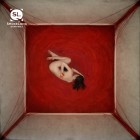I’m interested in a story mostly contained in a memory or memories. It always asks the reader to consider the speaker’s occasion for telling the story. The speaker’s guilt is evident when she imagines the cow, and I found myself wondering if somehow the speaker felt guilty about the birth of their sibling, something karmic perhaps. How big a role, if any, does guilt play in the speaker’s occasion for telling the story?
I hadn’t explicitly considered the implications of guilt for this story, but I can see now how many of the details are layered with it. If the speaker did possess much guilt, I think it would be directed towards the mother, as the story starts with a memory of her and ends with her in a pretty compromised state. I suppose there’s always some guilt involved at that age when you are just becoming cognizant of suffering but are unable to do anything to relieve it.
What was the impetus for you writing this story?
If I’m honest, I don’t really start any of my writing with an articulable impulse. The initial charge is often, or at least seems, very much out of my control. Practically speaking, I wrote this story’s first draft for a college course—my introduction to flash fiction. At the time, I naively thought flash fiction had to be episodic and was best contained only in a dream or memory – I chose the latter. A lot of my personal memories are associated with scents and aromas, so food became a natural sensory image. From there, I focused on a food I personally resonated with (one of my favorite Korean dishes is jokbal, or braised pig trotters) and went off of the mixture of emotions that the dish elicited.
In its lyricism, the language of this story enlivens so many sensory details of the speaker’s memory—the “floating buttons of fat” and scent on their mother’s hair of mugwort and thyme. When I finished reading it, I felt like I’d read something akin to a poem. Do you have a relationship with poetry? If so, do you mind describing it and how you might use it to inform the composition of flash fiction?
Poetry is still for me an elusive beast. Though I do write it occasionally, it remains an art I approach cautiously. In some ways this is deliberate, as years of studying and critiquing fiction has rendered near impossible for me the simple act of marveling at beauty without wanting to pop the hood and figure it out. With poetry, I’m still able to just be baffled. I think poetry and flash fiction very much inform the other. They are both so exacting, economical, and almost sentient in their brevity. Neither leaves much footing and consequently they demand a lot from both the writer and reader.
I was struck by the speaker’s continuous use of “it” to denote the baby, even after several years of life, which makes the speaker seem to want to keep the baby at a distance. Why might the narrator want to do this?
When I initially envisioned the baby, it embodied something more animal than human. Assigning a pronoun may have been too cruel and misleading, given the baby’s description. My intention for the baby was more to signify the rupture of a stewing household violence than to introduce a new character. I wanted the latent violence contained in the story to come to a head: the broth made of a severed paw; the speaker’s terse acknowledgment of a missing father; the mother’s fractured spine; the invasive nature of poverty and the natural world (rain, birth). Literally, I suppose the speaker’s distance may have much to do with how they internalized and directed the trauma surrounding their sibling’s birth.
Spanish plays a big role in this story. For example, the speaker’s utterance of “baca” is a mistake, though it still plays an associative role in the details of the story, as the rain leaks through the ceiling and in the way the baby lies limp on its back, presumably staring at the ceiling. What can multiple languages in a story do that a single language can’t?
Language has always structured memory for me. My parents are immigrants, so my first language was Korean. As a kid most of my mental energy was spent code-switching or translating myself between home and school. I’ve always been intrigued by children born at the nexus of migrations. Any child who has ever had to translate themselves in frustration to a parent who didn’t share their language knows it is a very specific kind of heartbreak.
Spanish made its way into this story (it usually doesn’t) because, despite years of formal instruction, I still consider myself a stranger to it. I guess I wanted to recreate the illusion of ignorance—the novice mistake of confusing one word for another—not only for the non-Spanish-speaking reader, but also for myself as I was writing the piece.
As for language as a literary device, learning a new language can be really epiphanic, which naturally aligns with stories of realization. For a kid, figuring out a new tongue is in many ways a lot like figuring out who your parents are or making sense of a new sibling. More than that, for those of us who’ve lived a childhood of deliberate translation, language has the capacity to create textures and moods in ways most descriptors cannot.



 A SmokeLong Summer 24!
A SmokeLong Summer 24!